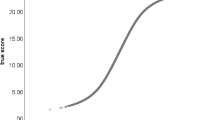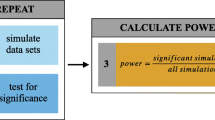Abstract
Several fallacies of conditionalization are illustrated, using the two-envelope problem as a case in point
Similar content being viewed by others
REFERENCES
Bickel, P. and K. Doksum: 1977, Mathematical Statistics, Holden-Day, San Francisco, p. 6.
Broome, J.: 1995, ‘The Two-Envelope Paradox’, Analysis 55(1), 6-11.
Chihara, C.: 1995, ‘The Mystery of Julius: A Paradox in Decision Theory’, Philosophical Studies 80, 1-16.
Jeffrey, R.: 1995, Probabilistic Thinking. Princeton University.
Parzen, E.: 1960, Modern Probability Theory and its Applications, John Wiley, New York, p. 384.
Savage, L.: 1954, The Foundations of Statistics, John Wiley, New York.
Zabell, S.: 1988, ‘Loss and Gain: The Exchange Paradox’, In: J. Bernardo et al. (eds.), Bayesian Statistics 3: Proceedings of the Third Valencia International Meeting. Oxford, pp. 233-236.
Author information
Authors and Affiliations
Rights and permissions
About this article
Cite this article
Wagner, C.G. Misadventures In Conditional Expectation: The Two-Envelope Problem. Erkenntnis 51, 233–241 (1999). https://doi.org/10.1023/A:1005488325727
Issue Date:
DOI: https://doi.org/10.1023/A:1005488325727




